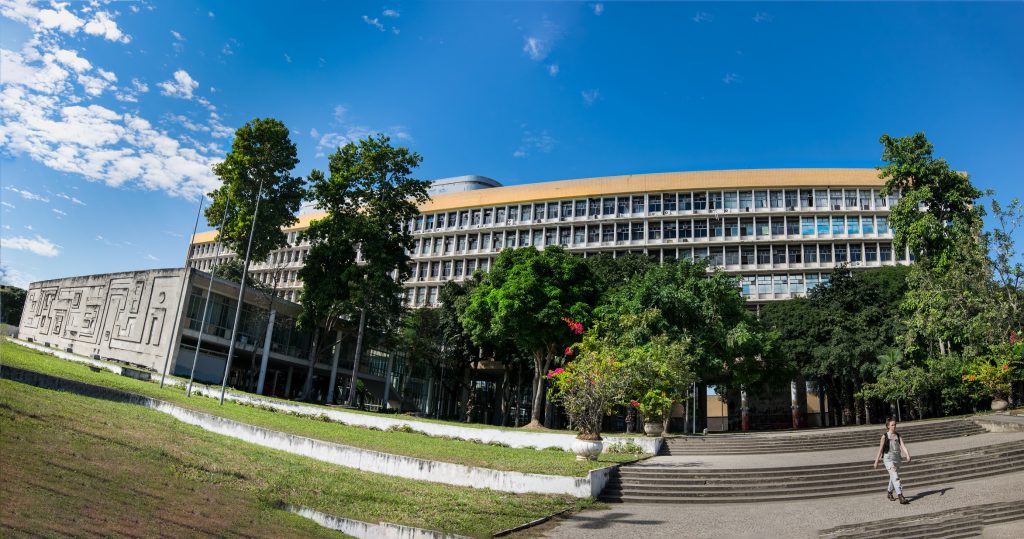São Paulo – The Arabic Studies Department at the Federal University of Rio de Janeiro (UFRJ) has completed 50 years and, to celebrate, will hold a Commemorative Journey on May 22 from 10am to 4pm at the Center of Language and Arts at Fundão Island in Rio de Janeiro, Brazil. UFRJ will complete 100 years in 2020. Pictured above is the presidency building.
The department’s Golden Jubilee will feature an opening session at Auditory 3 with members of the board, the presidency, and the department head, as well as professors in the institution. Then, Room D-16 will saw an exhibition of documents, medals, translated books, dictionaries, manuals, thesis, and photos, which are part of projects done at the Arabic Studies Department of the university, from 11am to 4pm. According to professor Suely Ferreira Lima, who coordinates the department, there will also be a coffee break, hold by the professors themselves, so that the date was not overlooked.

“When we had our 40th anniversary ten years ago, it was a great time for the university, and we could hold a nice event. We launched [our] first Arabic-Portuguese dictionary and hold a gathering of Portuguese-Brazilian Arabists. We gathered scholars from Morocco, Brazil, Portugal, and other countries. But this year, with the government crisis and the funding cuts, we couldn’t celebrate this date that is even more emblematic in kind,” said Lima.
The Arabic-Portuguese Dictionary was written by the Lebanese author Alphonse Nagib Sabbagh, who founded UFRJ Arabic Studies Department. Sabbagh, who was also a Melkite Greek Catholic Church monsignor, died at the age of 95 in 2015 .
Lima points out that aprofessor at the department, João Baptista de Medeiros Vargens, won the UNESCO Sharjah Award for Arab Culture in 2012. Vargens also won a translation award granted by Saudi Arabia in 2013. He founded Almádena, the publishing house that launched the Arabic-Portuguese Dictionary.
According to the coordinator, the funding cuts in federal universities proposed by the current government will affect not only the Arabic Studies Department but every department in federal universities. Lima said that in the last few years, the university has suffered gradual budget cuts and does not have money for academic events, such as undergrad and grad conclusion boards.
“Some years ago, we had budget to create an examining board, and professors from other cities and states would come and costs would be paid by the university, but we don’t have money for even that anymore, we now must do it via videoconference, which is not the same,” she said. The Arabic Studies Department offers fifteen places per year, and according to Lima around six or seven students from each class graduate.
“We want to make our course and the Arabic Studies Department known for the society in a moment both so difficult and important for the country’s public universities. Everyone interested in the Arab culture and wishing to know more about UFRJ are invited to participate in our event,” said Lima. Admission is free.
Quick Facts
Commemorative Journey – 50 years of the Arabic Studies Department
UFRJ Center of Language and Arts
May 22, from 10am to 4pm
Opening Session at 10am at Auditory 3
Exhibition from 11am to 4pm at Room D-16
Languages School, Fundão Island
Rio de Janeiro, Brazil
Free Admission
Translated by Guilherme Miranda




